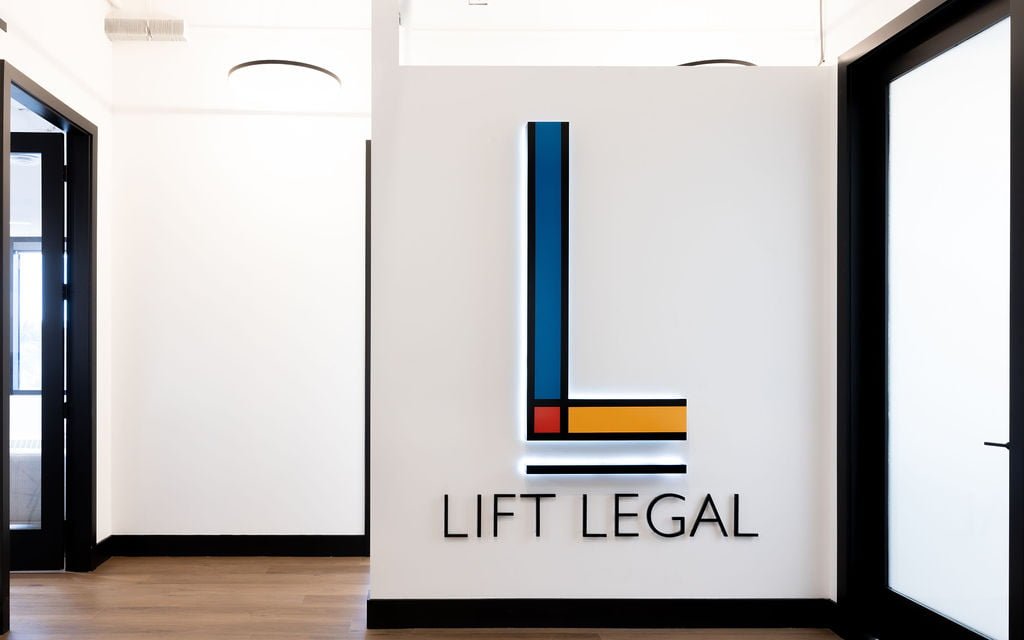There are four types of business ownership possible in Canada: as an entrepreneur or small business owner, you can choose to set up a sole proprietorship, a partnership, a corporation or a cooperative. Choosing the ownership type most appropriate for your business will determine how it is organized, how revenue and expenses are handled, and how you file your corporate income tax. At Lift Legal, we recommend weighing the pros and cons of each model before deciding on the legal structure of your new business venture.
If you prefer not to be a sole owner and proprietor of your business, you may wish to consider legally setting up as a partnership with any number of other individuals. The law does not set a limit on the number of partners that can be involved.
In Alberta, there are three types of partnerships: general partnerships, limited partnerships and limited liability partnerships.
- General partnership
The general partnership is the most common type of partnership. Here, each partner is jointly and severally liable for the partnership’s debts. - Limited partnership
In a limited partnership, individuals can contribute to a business without being involved in the partnership’s affairs. This is one reason businesses often use limited partnerships to raise money.
If you are a limited partner in a business, you can contribute financially, and your liability to the business or to its creditors is limited to the amount you invest. As a limited partner, however, you must not take part in managing the firm, nor can you act on the company’s behalf. Otherwise, you are no longer a limited partner: you become a general partner and carry the same liability as other general partners. - Limited liability partnership
A limited liability partnership (or LLP) is governed by specific Alberta legislation. As such, it is available only to groups carrying on practice in an eligible and regulated profession, as specified in Section 81 of Alberta’s Partnership Act. Examples include lawyers, doctors and accountants.
A limited partnership may not be registered as a limited liability partnership.
Advantages
- Reduced liability
Because a partnership can sign contracts and borrow money, it carries fewer of the liability burdens than a sole proprietorship. - Rich talent pool and strong working relationships
The key benefit of a partnership rests not so much in its legal structure, but, rather, in the working relationship between the partners. Successful partnerships are those in which partners’ skills and talents complement each other and in which partners are comfortable sharing the decision-making. - Tax simplicity
As with sole proprietorships, partnerships do not have to file separate income tax returns or pay separate income tax. The partnership’s financial information is combined with the partners’ personal income to determine their overall tax liability. If you enter into a partnership, you will still report all income generated by the partnership on your T1 Income Tax Form when filing your personal income tax.
In a limited liability partnership, partners have more liability protection than do general partners. If a client feels wronged or injured as the result of the action of one partner and chooses to sue, he or she can sue the partnership. However, only the assets of the partner who worked with that client will be at risk. This would not be the case if all were general partners: in that instance, all partners’ assets would be at risk.
Disadvantages
- Shared responsibility for debts, obligations, wrongful acts or omissions
In a partnership, one partner can be held responsible for debts and obligations another partner incurs in the name of the partnership. Similarly, as a partner, you can also be held responsible for any wrongful act or omission by other partners in the normal course of carrying out business operations. - Dissolution of partnership
One disadvantage many people fail to consider when entering a partnership is the possibility of strained relationships, misunderstanding and disagreement should the partnership ever dissolve. Before entering a partnership of any sort, be sure there is a written partnership agreement in place. Consult with a lawyer. At Lift Legal, we can explain partnership issues in more detail and help you draft an agreement that says precisely what it needs to.
Whether you choose to set up a sole proprietorship, a partnership, a corporation or a cooperative, the legal form of business ownership you choose is an important decision. Your business’s legal structure will affect not only your setup, administrative and operational costs, but also your tax planning and possibly also your succession planning. It is something to decide even before deciding on a business name.
This is not to say that your business’s legal structure can’t change as your circumstances change. Choose the form of ownership appropriate to your present situation, and review it as your business grows. Trust the Lift Legal team to meet with you to provide the guidance and answers you need.
Contact us today to arrange your consultation.
Disclaimer:
The information on this blog and website is provided by Lift Legal for educational purposes only. It is intended to give readers a general understanding of the law, not to provide specific legal advice. Information contained in these pages should not be used in place of competent legal advice from a licensed, practising lawyer in Alberta. Furthermore, by using this blog and website, you understand that no lawyer-client relationship exists between you and Lift Legal.













